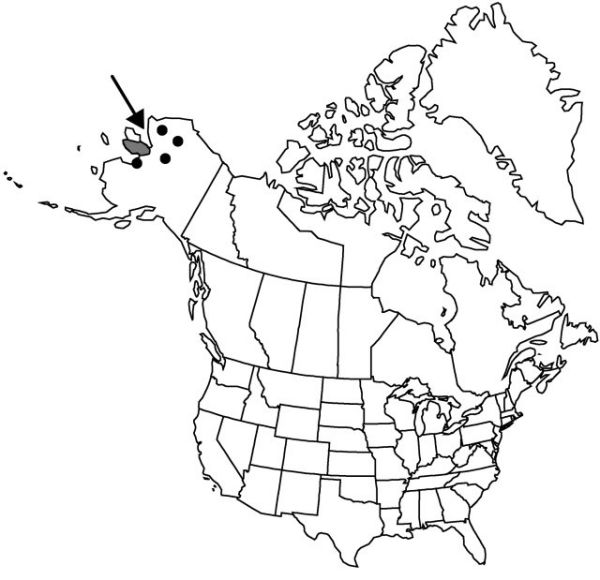Difference between revisions of "Veratrum album var. oxysepalum"
in K. Miyabe and T. Miyake, Fl. Saghalin, 484. 1915.
FNA>Volume Importer |
FNA>Volume Importer |
Revision as of 21:43, 16 December 2019
Stems 0.3–1 m, glabrous proximally, villous in inflorescence. Leaves basal and proximal cauline ovate to elliptic, 10–25 × 5–18 cm, reduced distally, glabrous to sparsely villous at least on veins. Inflorescences spiciform-racemose or with few, short, ascending branches proximally, 0–10 cm, sparsely villous; bracts lanceolate, 1/2 as long as to equaling flowers, sparsely villous, ciliate. Tepals yellowish green, lanceolate to lance-ovate, not clawed, 7–12 mm, margins denticulate, sparsely villous at least in proximal 1/2; gland 1, basal, green to yellowish green, V-shaped; ovary subglabrous. Capsules elliptic to oblong, 1–1.5 cm, subglabrous. Seeds flat, broadly winged, 5–7 mm. 2n = 64.
Phenology: Flowering early summer–late fall.
Habitat: Wet, marshy soils in mesic tundra and Salix thickets
Elevation: 0–1000 m
Distribution

Alaska, ne Russia, n Japan (Hokkaido).
Discussion
Selected References
None.